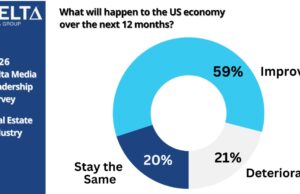Foreclosure-Response.org Team Releases Latest Data on Serious Delinquency and Foreclosure Rates for All 366 U.S. Metro Areas
Washington, DC – December 1, 2010 – (RealEstateRama) — The three co-creators of Foreclosure-Response.org – Local Initiatives Support Corporation (LISC), the Urban Institute, and the Center for Housing Policy – have compiled and released new data on seriously delinquent mortgages for all 366 U.S. metro areas. “Seriously delinquent” mortgages are those that are delinquent 90 days or more or are in the foreclosure process. Homeowners experiencing serious delinquency are at substantial risk of losing their homes.
The new data include a comparison of metropolitan-area serious delinquency rates from June 2009 to June 2010. Key findings from an analysis of these data include:
Florida’s metropolitan areas have some of the highest serious delinquency rates in the country; rates are still rising rapidly.
Nine out of the top ten and 15 out of the top 25 metro areas with the highest serious delinquency rates in June 2010 were in Florida. Of the 25 metro areas with the biggest growth in serious delinquency rates from June 2009 to June 2010, 11 were in Florida. This suggests that foreclosure problems in Florida have not yet stabilized. In the Miami metro area – the area with the highest serious delinquency rate – 25.6% of mortgages were seriously delinquent in June 2010, up 4.3 percentage points from June 2009.The serious delinquency rate is high and rising in the Las Vegas metro area.
The Las Vegas metro area had the second highest serious delinquency rate in June 2010 (24.2%) and the largest increase from the prior year (4.4 percentage points). The Las Vegas metro area also had the largest 90+ day delinquency rate of all 366 U.S. metropolitan areas. This suggests that the problem is worsening in Las Vegas and that foreclosures are likely to continue to rise.The foreclosure inventory may rise in California as delinquent loans move into foreclosure, but there is reason to think the problem may be stabilizing.
Seven of the 25 metro areas with the highest serious delinquency rates in June 2010 were in California. As compared to the metro areas on the top-25 list from Florida, the California metro areas have lower foreclosure rates but higher rates of 90+ day delinquencies. This suggests that, in the short term, foreclosure rates may rise in these California metro areas as loans move from delinquency to foreclosure.At the same time, there are also signs that the foreclosure crisis may ultimately be stabilizing in California. The overall rate of serious delinquency – a combination of loans in foreclosure and loans 90+ days delinquent – for the California metro areas grew only modestly between June 2009 and June 2010.
The new data are an update of an earlier dataset, released by the Foreclosure-Response.org team in September 2010, that provided the first-ever data on serious delinquency rates for all 366 U.S. metros. Both the initial release and the new data reveal that the severity and trajectory of the problem vary dramatically across the nation. The Bismarck, North Dakota metro area had the lowest share of seriously delinquent mortgages among U.S. metro areas in June 2010 (1.8 percent), and the Austin metro area had the lowest share among the nation’s 100 largest metro areas (4.3 percent). At the other extreme, 25.6 percent of first lien mortgages in the Miami area were seriously delinquent in June 2010.
“The most rapid increases in mortgage delinquency occurred in metro areas where home prices are much higher than local incomes can afford” observed Tom Kingsley, senior fellow at the Urban Institute. “But serious delinquency rates are also rising rapidly in metro areas within Colorado, Washington, and Utah where delinquency problems have been moderate so far.”
More detailed information on the methodology and a complete ranking of metropolitan areas are available at: foreclosure-response.org
Foreclosure-Response.org is a joint project of the Local Initiatives Support Corporation, the Urban Institute and the Center for Housing Policy. The site provides data on foreclosures at both the metro area and local levels, as well as information on promising state and local policies for preventing foreclosures and stabilizing communities impacted by foreclosures. Foreclosure-Response.org is funded through grants from the Ford Foundation, Annie E. Casey Foundation and Fannie Mae.











